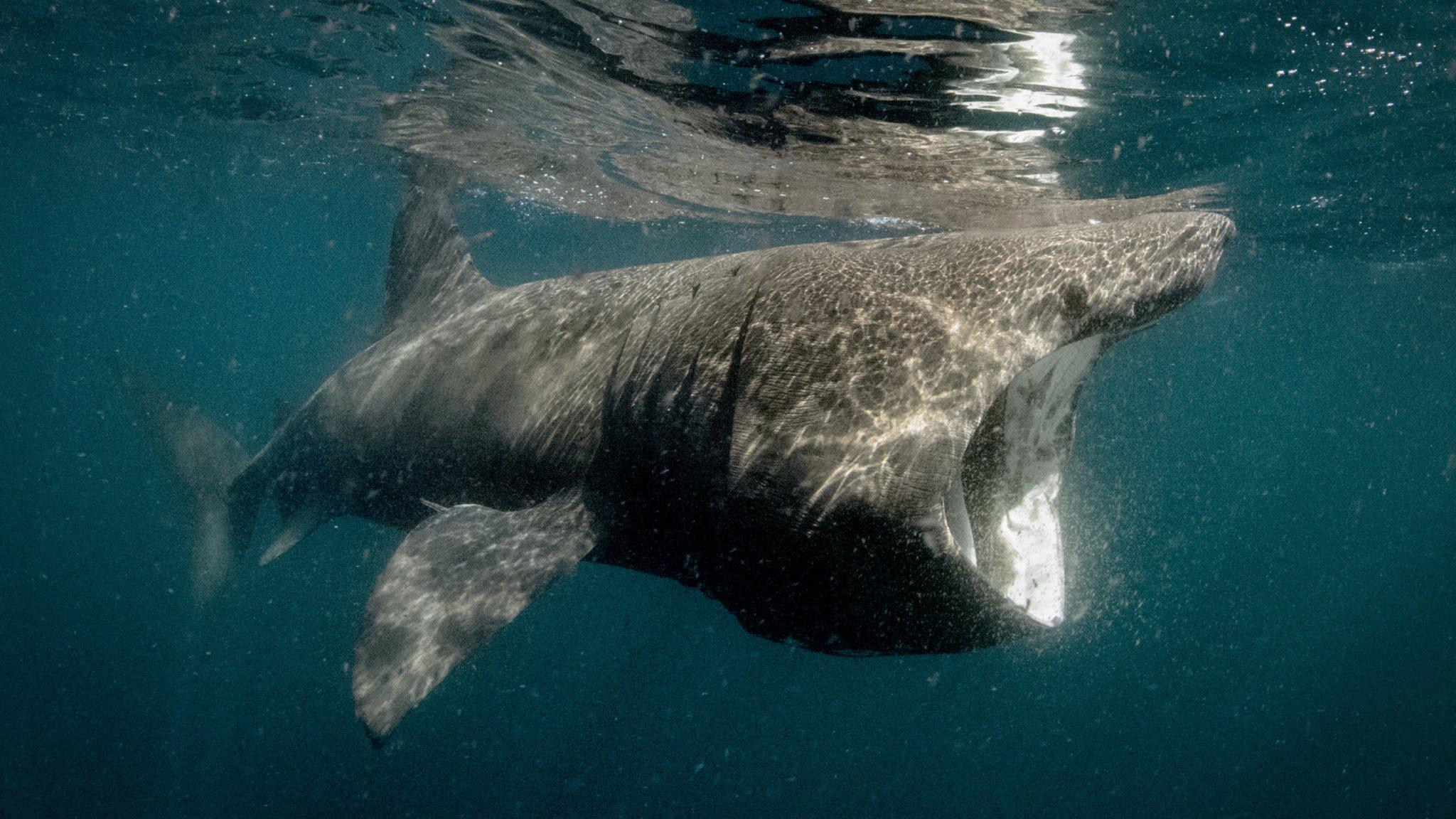Greenpeace drops boulders off Cornwall to disrupt deep fishing
- Published
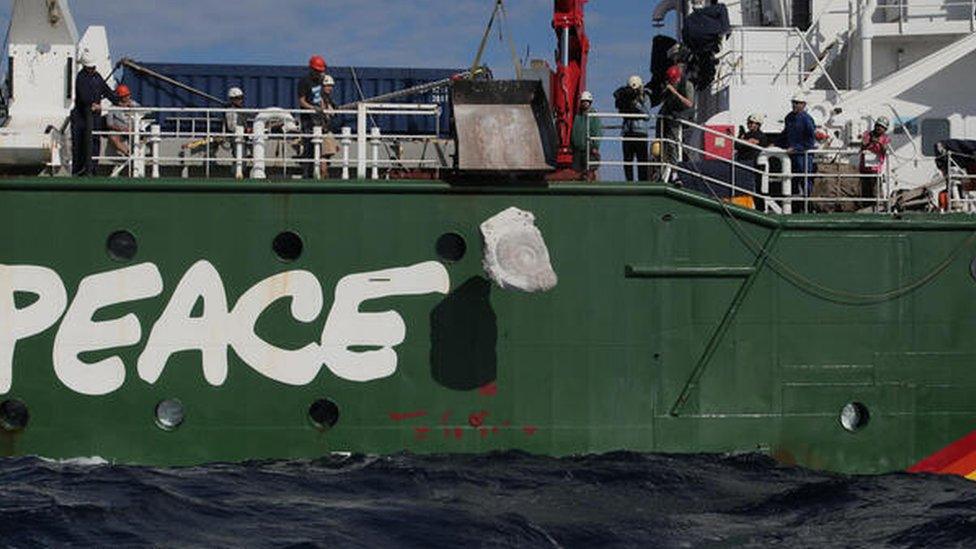
The boulders were dropped from Greenpeace's ship, the Arctic Sunrise
Greenpeace has dropped 18 boulders into the ocean about 200 miles (322km) off Cornwall in an attempt to disrupt industrial fishing.
The environmental group released the boulders into the South West Deeps from its ship Arctic Sunrise on Thursday.
It aims to create a barrier making it hard for deep sea trawlers to operate in the protected area.
The government said it was "disappointed", adding the move was not justified and "potentially illegal".
The South West Deeps (East) is a designated Marine Conservation Zone, external, protecting rare species and habitats from excessive human activities like fishing.
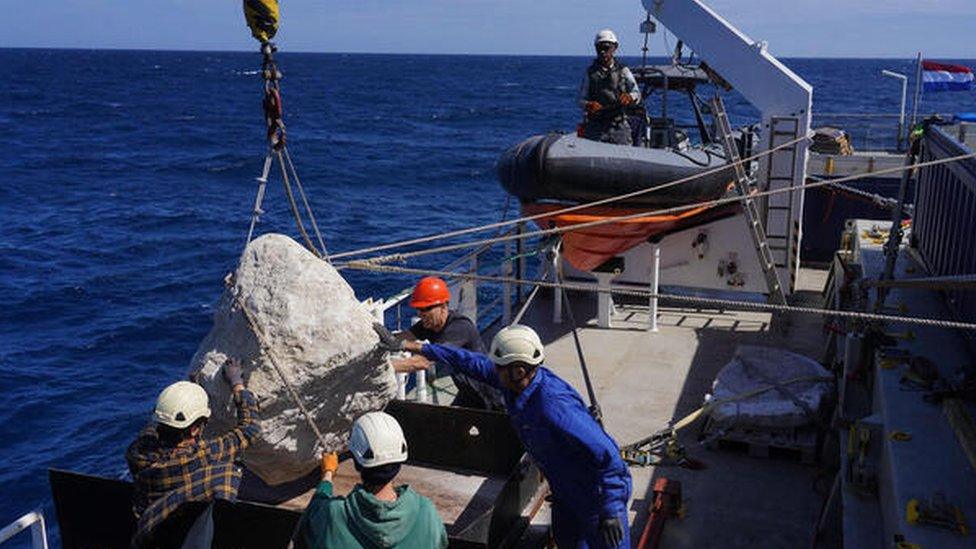
The government said the boulders would have "minimal impact"
Greenpeace said the limestone boulders, weighing between 500kg (78st 10lb) and 1,400kg (220st 6lb), "make it impossible for bottom-towed fishing gear to be dragged along the seabed".
Will McCallum, head of oceans at Greenpeace UK, said: "Right now, there's an industrial fishing frenzy happening in UK waters, and what's our government doing about it? Greenpeace UK has created this underwater boulder barrier as a last resort to protect the oceans.
"We'd much rather the government just did their job."
Greenpeace said the majority of the boats fishing the South West Deeps were from France and Spain.
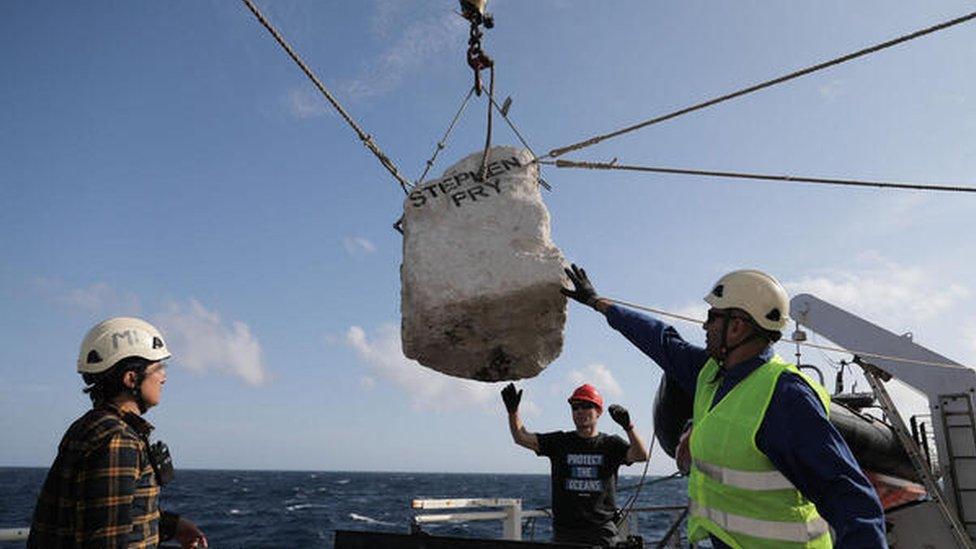
Some had names of celebrities and politicians who support the charity stencilled on them, including Stephen Fry, Simon Pegg and Hugh Fearnley Whittingstall.
A statement from the Marine Management Organisation (MMO), the government body responsible for managing English waters, said: "As England's marine regulator, we are very disappointed that Greenpeace has chosen to take this action to drop boulders to form a barrier as we don't believe it is justified or will help protect our marine environment."
It said it was investigating the action as "potentially illegal" as a marine licence is required for any deposit of construction below high water.
It said it believed dropping boulders in this location would have "minimal impact", but remained open to further discussions with Greenpeace.
The MMO said it had "already announced a programme of work to manage all fishing activities in England's 40 offshore marine protected areas by the end of 2024", including the South West Deeps (East).

Follow BBC News South West on Twitter, external, Facebook, external and Instagram, external. Send your story ideas to spotlight@bbc.co.uk, external.
Related topics
- Published15 August 2022
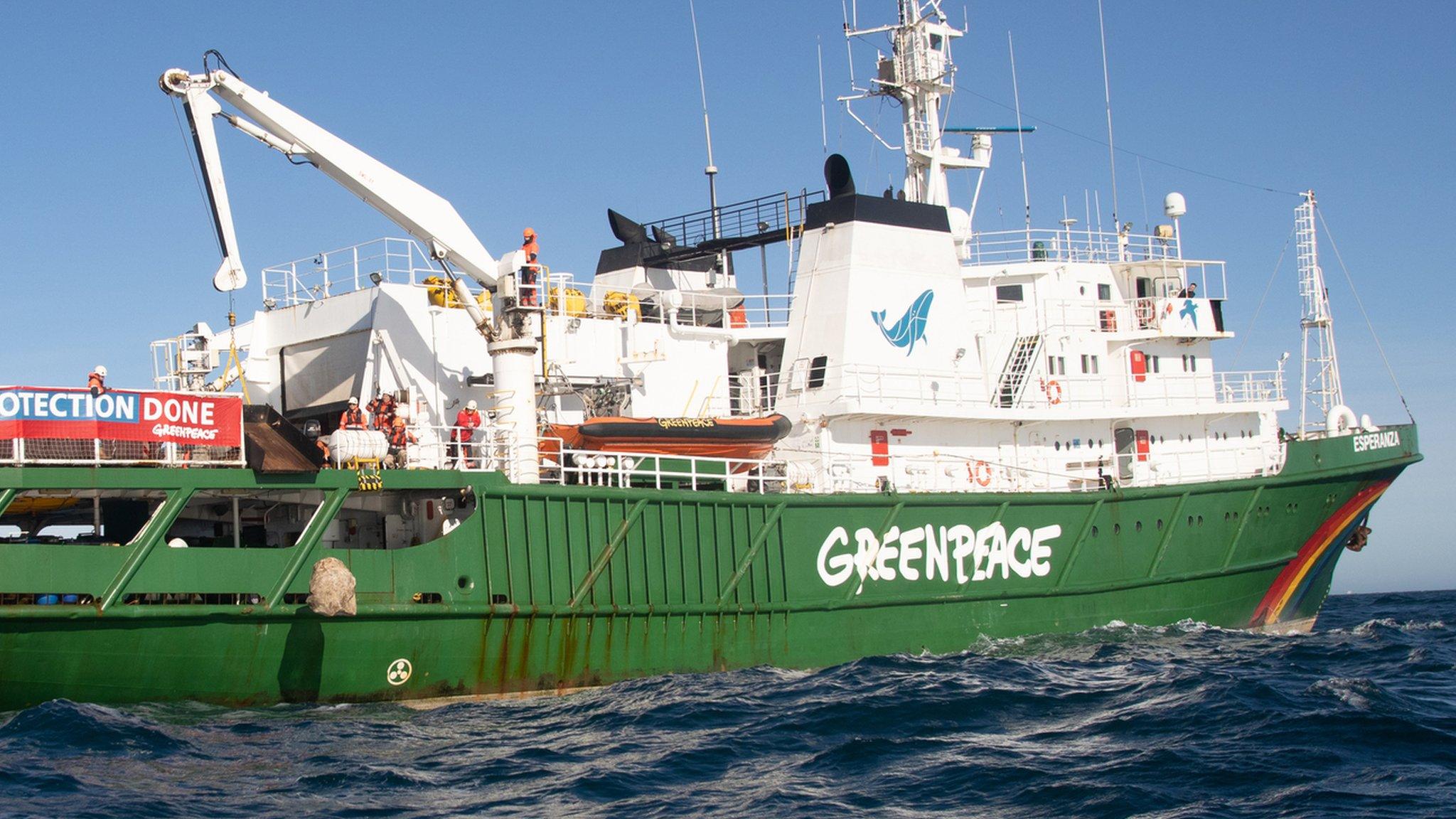
- Published16 August 2022
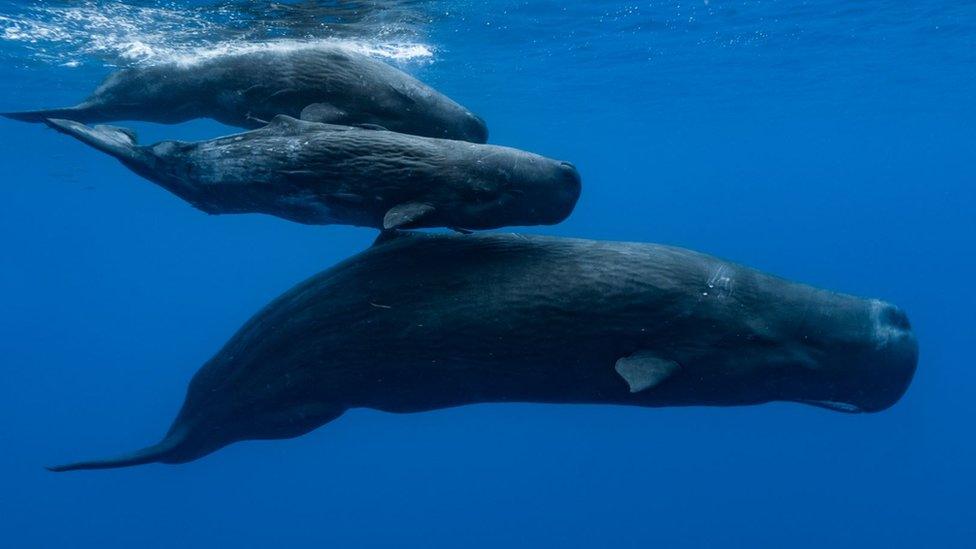
- Published7 February 2022

- Published26 February 2021
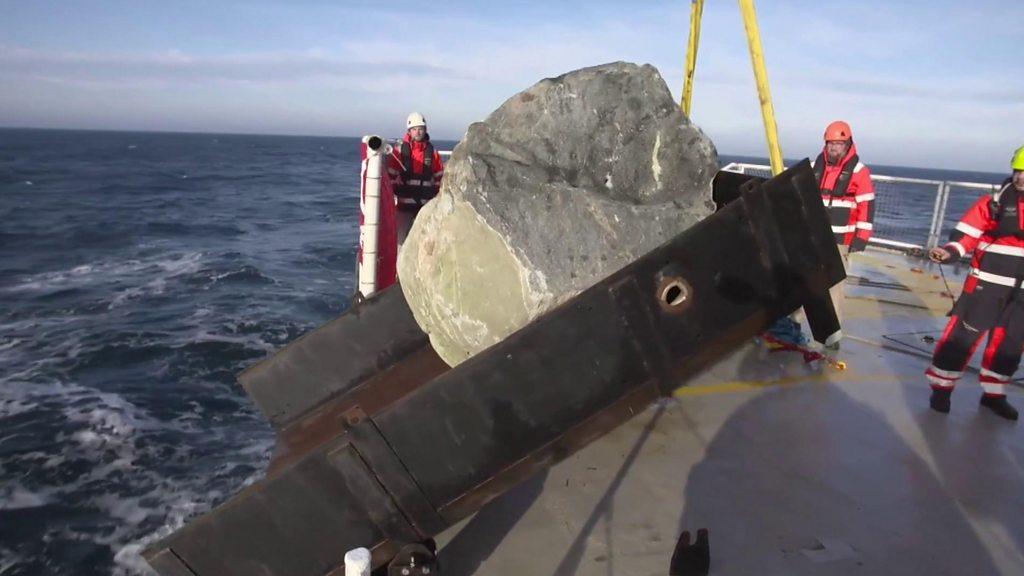
- Published1 February 2021
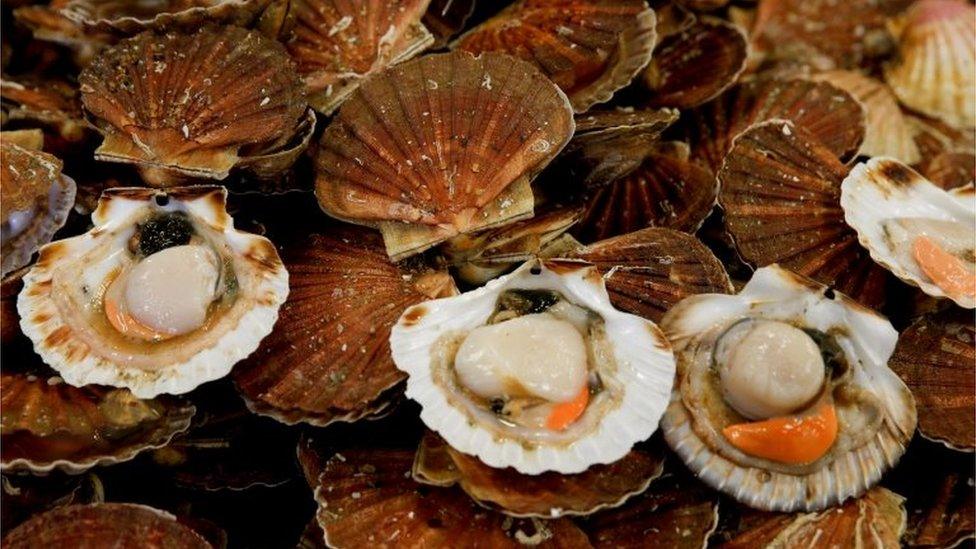
- Published3 December 2020
